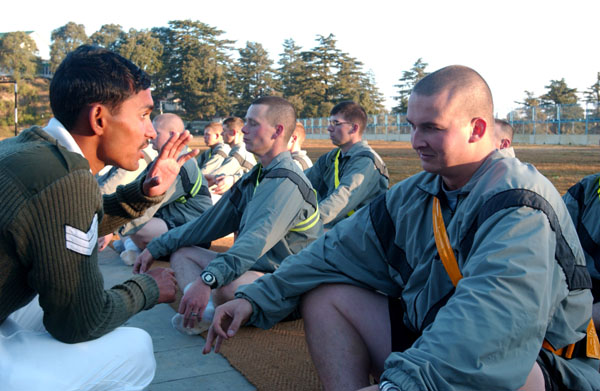When I joined the Canadian Armed Forces at the age of 17, I was given a pocket-sized cue card with the following principles of leadership inscribed on them, with the instructions to memorize and apply them.
1. Achieve professional competence.
2. Appreciate your own strengths and limitations and pursue self-improvement.
3. Seek and accept responsibility.
4. Lead by example.
5. Ensure your followers know your meaning and intent, and lead them to the accomplishment of the mission
6. Know your soldiers and promote their welfare.
7. Develop the leadership potential of your followers.
8. Make sound and timely decisions.
9. Train your soldiers as a team and employ them up to their capabilities.
10. Keep your followers informed of the mission, the changing situation and the overall picture.
So there it was, the list to end all lists. It was a hefty order for me to take on at the age of 17. So, if I acted in such a way that reflected those 10 principles of leadership, then I would be a good leader, and surely, my subordinates would respect me, right?
I could go on at length about the different schools of thought out there on whether leadership can be taught or whether it is an innate skill. I will not go down that rabbit hole.
For those of you who may already be sensing where I am going with this, the overarching principle anchoring all 10 of the principles above is simply: get rid of your ego, and genuinely care for others.
That is what the Canadian Armed Forces was asking me to do, more or less. Teaching officer candidates the principles of leadership subscribes to the Dale Carnegie method, where someone “fakes it” until he or she makes it. This is difficult to achieve for someone who is self-centered, selfish, or arrogant. Real leadership comes from within. It is difficult to fake selflessness.
Lao Tzu, the father of Taoism best describes leadership:
“All streams flow to the sea because it is lower than they are. Humility gives it its power.’’
Enter meditation, mindfulness, and mind-body exercises such as yoga or tai chi. Are they not trying to accomplish the unshackling of our true selves from our ego? Then why does the military not teach these skills to their recruits?
There is an African proverb which states:
“When there is no enemy within, the enemy outside cannot hurt you.’’
Spirituality and combat are not inseparable. In fact, the ancient martial art of tai chi, now praised for its abilities to relax and promote good health, was first developed as a deadly martial art. The very softness of the body, when the movements are applied with power, are what can make them so lethal. The paradox tai chi presents to its students is that the weak overcomes the strong, the soft overcomes the hard.
Following the combat mission in Afghanistan, our soldiers returned home after having lived through incredibly challenging situations. Our medical system diagnosed many of them with Post Traumatic Stress Disorder. This term has since fallen off the radar, for it is not a disorder, but rather a normal reaction to an abnormal event. Once again, meditation, mindfulness, and mind-body exercises such as yoga or tai chi could prove invaluable for soldiers, providing a necessary crutch for these injured individuals.
Following my return from Afghanistan in 2009, I felt a lot of built up anger within me. I did not know how to release it, other than through alcohol and an implacable wall of humor. Fast-forward to 2013, when my tae-kwon-do instructor mentioned in passing that there was no higher action than to slash away at the ego through meditation. I took his words at face value, and purchased a “how to meditate” book.
In November of 2013, I sat down for five excruciating minutes, trying to focus on my breath. Interestingly, I felt better instantly, like I had released some steam, just by sitting. How odd. I haven’t look back, and have since adopted tai chi and qi gong as meditation’s trusted sidekicks.
Our military leaders at all levels are asked to engage in increasingly complex international operations which require tremendous mental agility, an ability to think both rationally and emotionally, all while managing a huge amount of stress. Some cope better than others. We all run an occasional disk defragmentation on our computers. Why don’t we equip our soldiers with the tools to do the same on their subconscious mind?
Although military conflict should never be a desired outcome, our government uses the military when there are no other options. When this occurs, our military force should be ready to face the fog of war. There is a clear and necessary place in the military training regimen for slowing down, and going within. The end result will yield more compassionate and resilient leaders and soldiers.
Relephant read:
A Military Wife Goes to Yoga. ~ Kanani Fong
~
Author: Grégoire Laforce
Editor: Travis May
Photo: flickr/Matthew MacRoberts


 Share on bsky
Share on bsky





Read 2 comments and reply